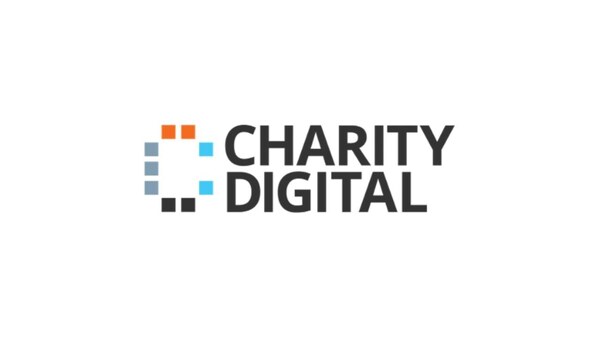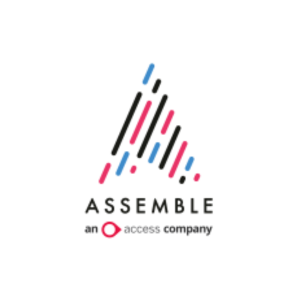Insights
INSIGHTS
All Topics
How to make hiring more accessible to neurodivergent people
Inclusive and accessible hiring practices are vital. Done well, they’ll help you attract a diverse range of talent to your team, and let you benefit from people’s unique strengths and abilities
It’s vital to make your whole workplace inclusive and accessible to neurodivergent people. Recruitment alone won’t cut it.
The good news is that recruitment processes can be a simple and powerful place to start. And many of these changes are free, quick, and easy to make.
What is neurodivergence?
Neurodivergent is an umbrella term. It describes a whole range of neurodivergent identities and conditions, including:
- Dyslexia
- Dyscalculia
- Dysgraphia
- Epilepsy
- Tic conditions (like Tourette’s)
- Bipolar
- Obsessive Compulsive Disorder (OCD)
- Complex post-traumatic stress disorder (CPTSD)
- Autism
- Attention Deficit Hyperactivity Disorder (ADHD)
Note: the term ADHD is challenged, but we use it here because it’s widely recognised.
And there are many more: the above list is not exhaustive.
It’s important to note that neurodivergent is an identity term rather than a diagnosis. For example, some autistic people identify as Disabled but not neurodivergent. Others do not identify as Disabled. That’s okay!
Don’t ask people to define themselves or show a diagnosis in order to benefit from neurodivergent-friendly hiring practices. Just make them standard practice. Almost all of us benefit.
Keep job descriptions concise
“Must have: accounting qualifications. Nice to have: Photoshop, conversational Arabic, safeguarding, and experience teaching yoga.”
Okay, the job description above isn’t a real one. But you’ve probably come across something almost as varied in the past. All too often, they read like a wildly ambitious wish list, or a combination of several jobs into one.
Focus on essential job requirements only
Neurodivergent students rarely get the support they need to flourish at school, college, and university. Autistic students, for example, are more likely to leave university early.
So don’t ask for qualifications unless they are genuinely necessary.
“If I see a list of 14 requirements, I’m not going to apply unless I meet every single one of them,” says Rosie, who is autistic and currently looking for a job.
As Autistic Callum notes, many neurotypical people are comfortable applying even when they don’t fit the whole role. But neurodivergent folks (as well as women, marginalised genders and working-class people) are less likely to apply.
If you’re autistic and looking for a job, don’t be afraid to apply for roles you like but don’t meet all - or even most - of the requirements for. Job specs are not meant to be taken literally; NT people often apply for and secure jobs meeting only a fraction of the requirements.
— Callum Stephen (He/Him) (@AutisticCallum_) April 8, 2023
Avoid subjective criteria
Some jobs need qualifications – for example, in accountancy. But make sure you don’t add in arbitrary and subjective requirements on top of that. A qualified accountant, for example, doesn’t need to be someone who went to an “elite”, “prestigious” or “top” university.
The people who get into and flourish at “elite” institutions tend to be neurotypical, so this acts as a filter against neurodivergent talent (as well as working class people, people of colour, and people from other minoritised groups).
These rankings are also subjective. Some neurodivergent people are quite literal thinkers. For example, some autistic people might not consider themselves to have “top” grades unless they were literally top in their year.
Use literal language
We use figurative language all the time. While some metaphors, similes, and idioms are familiar enough to be understood, others will leave some neurodivergent applicants baffled.
Instead of asking for a candidate who “wears many hats” you could say what the different elements of the job are. For example, “must be skilled in creating, editing, and publishing written content, as well as working with audio and visual content”.
Show you care about accessibility and inclusion
Showing you care is not the same as saying you care. Avoid copy and pasted texts about being “an equal opportunities employer”.
Give concrete examples of exactly what your charity does, and why you value inclusion and accessibility deeply.
Perhaps you’ve benefited from the varied perspectives of a diverse workforce, which has let your charity survive tough times. Perhaps your mission is all about improving access to services, for deliberately disadvantaged people.
Be specific, honest, and authentic. Describe what resources and support you offer to neurodivergent and Disabled staff, and stress that you’re open to providing more if you can.
Don’t hurry deadlines
Preparing to apply for a job can be especially challenging for some neurodivergent folks. What some people consider a “quick” application might take somebody hours, days or weeks.
To accommodate this, give the most generous deadlines you can. Stop to ask yourself: do we really need to find someone within a week/ten days?
Stick to the deadline
Whatever deadline you choose, stick to it.
Closing the search early is very likely to harm neurodivergent and disabled candidates, including some people with anxiety or trauma conditions, long-term illness and chronic pain.
Explain things in advance
Tell candidates about the interview format, duration, and any additional tasks they’ll be asked to do. Make sure you share all the questions in advance.
If there’s an in-person interview, describe the environment in as much detail as possible, including noise levels and sensory considerations.
As well as responding to people’s request for adjustments, be sure to state what accommodations you offer as standard. This helps to normalise access.
And, remember, that you can just ask. Everyone’s different. Ask candidates what they need to feel comfortable and relaxed.
Consider sensory needs
Bright lights. Unpredictable schedule changes. Overcrowded spaces. Strong smells. Over-stimulating background sounds. All of these can be an assault on the senses for some neurodivergent people.
If you really have to interview people in-person, try to remove unnecessary sensory stimuli from the environment. It can be helpful to provide a chillout space with low lighting, stim toys, and noise cancelling headphones.
Hold as many of the interviews as possible over phone or video calls.
Or, if you can, consider replacing all interviews with written questions.
Assess for what you’re really assessing
If you’re hiring a stand-up comedian, you’ll need to assess their ability to think spontaneously. But many jobs don’t actually need you to improvise in front of a large group of people. So don’t put someone under unnecessary stress. What seems like a small challenge for some people could be incredibly harmful.
For example, some speaking autistic people will become non-verbal under stress, or someone living with chronic pain many take days (or longer) to recover from a difficult interview.
Ditch ableist best practices
Remind the hiring panel that a lot of “best practice” only works for neurotypical and non-disabled people.
You don’t need someone who can make eye contact for extended periods of time, for example. You need someone with the skills and experience to excel at the job.
Offer flexibility
Everyone’s different. Try to offer flexibility to meet people’s different strengths and support needs.
You could:
- Encourage people to have their camera on or off on video calls (and there’s no penalty for turning it off)
- Let people apply in writing, through a voice note or by recording a video
- Make it clear that formats can be changed and practices can be adjusted, if it will make the process more accessible
Don’t pretend to be perfect
Your adverts, interviews and hiring processes are unlikely to be perfect. Along the way, there may be confusing language or too-short deadlines.
It’s okay to make mistakes. Be open about the learning journey you are on. Ask for feedback. And if people are generous enough to share reflections with you about something that didn’t work for them, resist the urge to get defensive. Take the opportunity to learn.
Learn more below
Check out the below resources to gain more information:
Ettie Bailey-King
More on this topic
Recommended Products
Related Videos
Our Events
Charity Digital Academy
Our courses aim, in just three hours, to enhance soft skills and hard skills, boost your knowledge of finance and artificial intelligence, and supercharge your digital capabilities. Check out some of the incredible options by clicking here.























